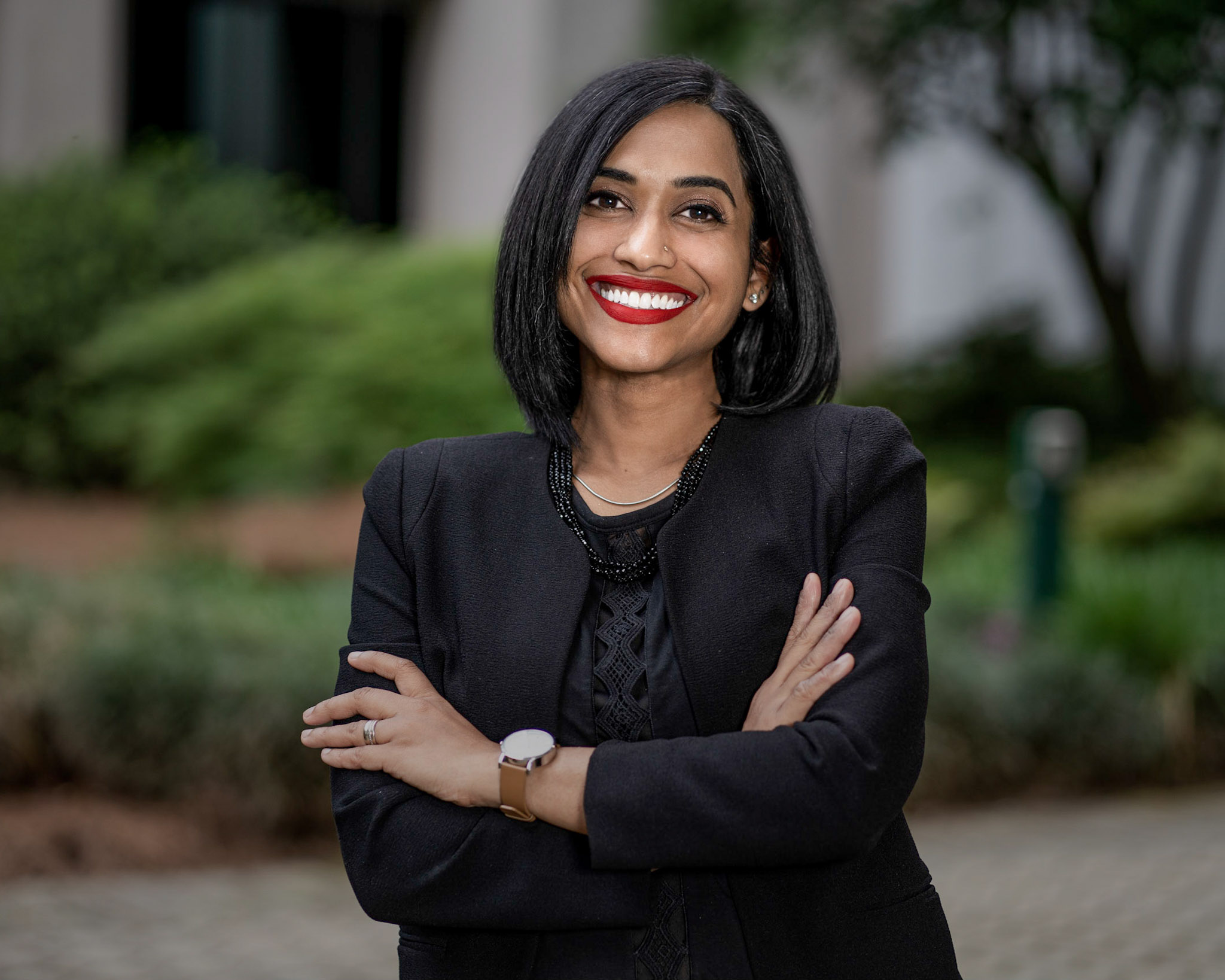Das Acevedo named research impact faculty fellow

The Emory University Senior Vice President for Research is sponsoring two Emory faculty members as the SVPR Research Impact Faculty Fellows, one of which is Deepa Das Acevedo, Emory asssociate professor of law.
Das Acevedo is a legal anthropologist. Her research blends ethnographic fieldwork and anthropological theory with doctrinal and policy analysis to provide new insights about legal rules and institutions. She studies employment regulation (particularly faculty tenure as an employment protection), the law and politics of India (focusing on next-generation law & policy organizations), and methodological and theoretical developments in the anthropology of law.
In a push to amplify the real-world impacts of Emory’s innovative research, the Office of the Senior Vice President for Research (SVPR) and the Center for Public Scholarship and Engagement (CPSE) partnered to offer a Research Impact Faculty Fellowship that will help shape the university’s plans for demonstrating to the public how research extends beyond academia to benefit society, culture, the environment and the economy.
The fellowship will focus on measuring the outcomes of research and organizing initiatives and activities that bring together scholars and experts in public scholarship.
The fellows will work closely with Deb Bruner, senior vice president for research, and Ken Carter, director of the Center for Public Scholarship and Engagement, to strategically measure and publicly communicate the real-world benefits of research.
The fellows will also collaborate with Carter and CPSE on the inaugural Public Scholarship Academy,scheduled for May 13-16, 2025. The four-day program, held in midtown Atlanta, will provide training and dedicated workshops for scholars on how to amplify the visibility and impact of their scholarly work and research beyond the ivory tower.
“Public scholarship is about more than just disseminating information — it’s about fostering meaningful connection between scholarly insights and the pressing issues shaping our world,” says Carter. “This fellowship will help us build the infrastructure and community to support faculty who are passionate about engaging diverse audiences and transforming lives through their work.”
The fellowship, which has substantial support from all academic units, will help establish the groundwork by leading efforts to create opportunities for faculty to engage in public scholarship and promote societal benefits of their work to wider audiences.
Late last year, Das Acevedo also officially assumed the role of editor-in-chief of PoLAR: Political and Legal Anthropology Review.
PoLAR—the journal of the Association for Political and Legal Anthropology (APLA), published through Wiley—is a leading peer-reviewed platform for scholarship at the intersection of politics, law, and anthropology.